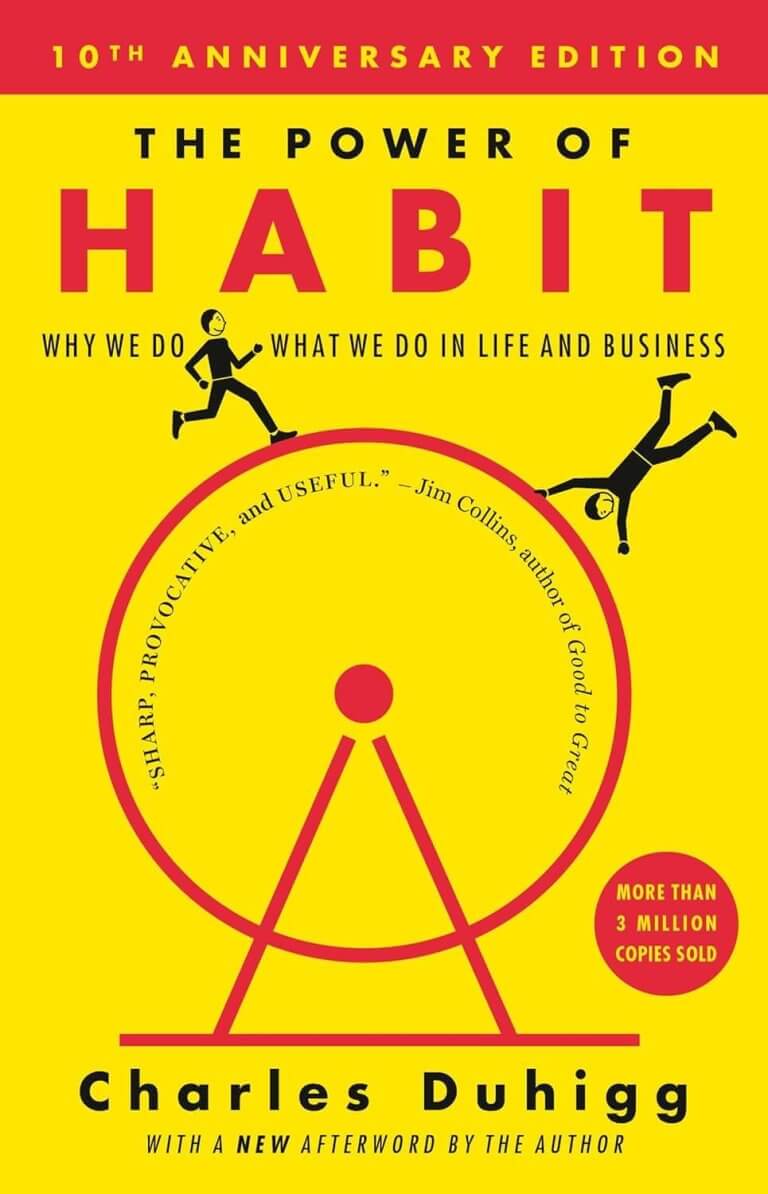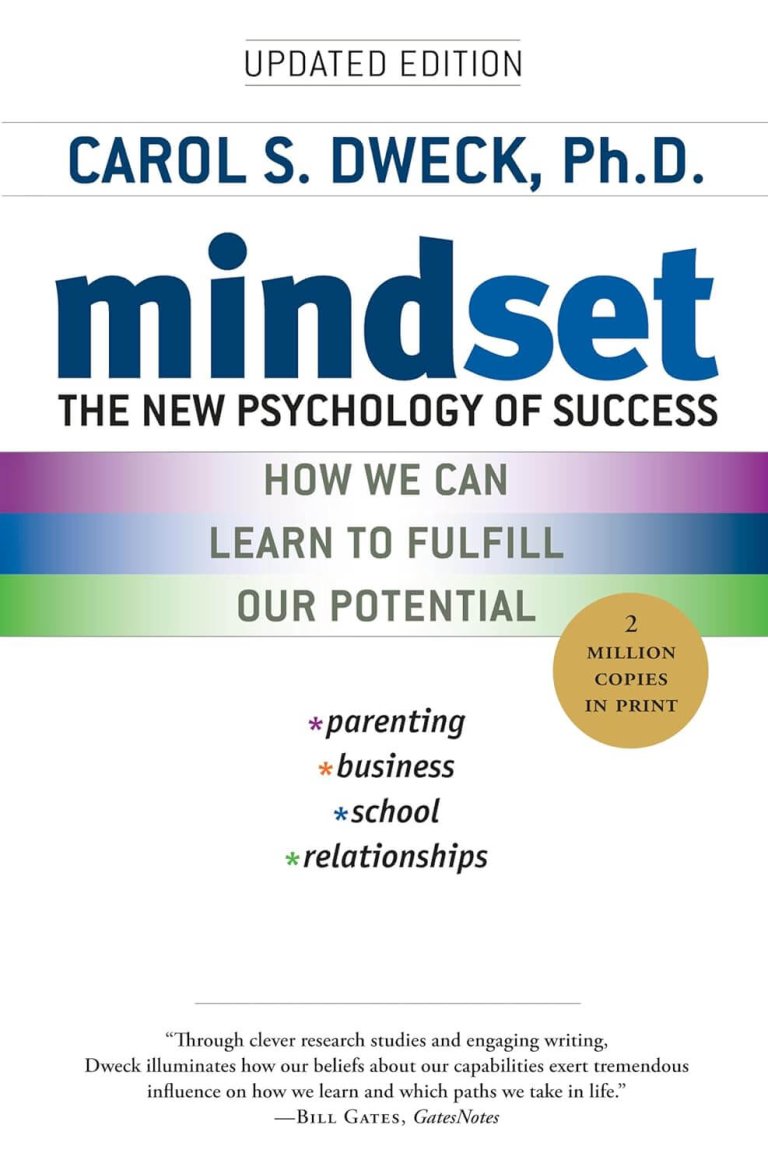Our site features affiliate links. If you buy through them, we earn a commission at no extra cost to you. Thanks for your support!
Finding the best motivational books that actually help can be a minefield – despite their best intentions, many books end up forgotten on the shelf immediately after being read.
In my decades-long quest for the best information for self-improvement that actually helps, these are the five best motivational books of all time that, when implemented correctly, have the potential to change your life for the better.
It’s important to remember that self-help books only work if you put in the effort, plan, and implement the ideas. Knowledge is power, but only when combined with action.
The 5 Best Motivational Books of All Time
1) Can’t Hurt Me – David Goggins

David Goggins’ list of achievements is as impressive as it is extensive. He completed US Navy Seal and Ranger School training, served in Iraq, ran 205 miles without stopping, and beat the Guinness world record for most pull-ups in 24 hours at 4030. That’s quite the resume.
While his accomplishments were legendary, his upbringing was anything but. His youth was filled with physical and emotional abuse, and while going off the rails in his late teens and early twenties, he learned to channel this emotional energy into fuel for his seemingly inhuman accomplishments.
What makes “Can’t Hurt Me” such a motivational piece is its rawness; while Goggins’ achievements may seem superhuman, his vulnerabilities and setbacks make his story relatable. He openly discusses his failures, fears, and the hard work required to overcome them, making his message of resilience and mental toughness accessible to everyone, regardless of their starting point.
Among the most important lessons you will learn while reading the book is, in Goggins’ own words, to first face your “bad hand”. While Goggins had a traumatic background that had him diagnosed with chronic stress at an early age, we all have our own bad hands and background experiences that limit us to some degree.
For many, myself included, I feel I was over-supported as a child, to the point where I am stuck in a comfort zone and find it hard to muster the motivation to leave my safe zone. Perhaps you do too, one reason why you’ve found this article.
Another of Goggins’s life-changing insights is the concept of the “40% Rule,” suggesting that most people only tap into 40% of their capabilities and potential. When trying to run a marathon, for example, and you hit the wall and your brain is screaming for you to give up, you are actually likely 40% physically done. Your mind gives out at about 40% of your body’s natural limit. The same can be said for writing or any other activity that you may struggle with.
One other key insight is the use of an “Accountability Mirror,” where he would reflect on his goals and the work needed to achieve them daily, emphasizing the importance of self-honesty and accountability in personal growth, the key fact that often prevents any self-help book, no matter how good, from being turned into reality.
“Can’t Hurt Me” is not just a memoir; it’s a call to action for anyone looking to break through their limitations, face their fears, and pursue their highest aspirations. Goggins’ raw and honest narrative, combined with practical advice, makes this book a powerful tool for anyone seeking motivation and a stronger mindset.
Check out “Can’t Hurt Me” on Amazon.
2) Make Your Bed – Admiral William H. McRaven

Admiral William H. McRaven, a retired Navy SEAL, takes us back to basics with ten easy-to-implement principles he learned during his extensive military training.
Among the most famous, and the theme for his thought-provoking title, is the importance of starting your day by completing a task.
McRaven suggests making your bed, an easy-to-complete task performed first thing that sets a positive tone for the day and gives you an immediate sense of accomplishment.
Of course, this first task can be anything; for those struggling to muster any motivation, making your bed may be an excellent first task to overcome the seemingly insurmountable barrier of laziness and procrastination.
For others, the task can be more specific to your goals. For myself, I try to get one hour of focused writing after waking up. This not only gets me closer to my goal of posting more articles but facing the day with your most important task already completed provides a boost of emotional and motivational energy.
The power of this principle is its ability to tap into our dopamine system, a system responsible for motivation, pleasure, and the pursuit of reward. While a task as simple as making your bed may seem benign, the real benefit is in the consistent reinforcement of the dopamine system that builds your motivation and momentum.
Resilience is also a key theme in the book; as McRaven puts it: “Life’s Not Fair—Drive On!”. He teaches that setbacks and unfair situations are part of life, but resilience and perseverance are key to overcoming them.
With success on social media only showing a person’s highlights, and never their failures, we are often hidden from the grim but universal truth that success is a long-term game that includes many setbacks. In fact, success is better defined as the ability to endure and overcome the numerous unavoidable failures and obstacles that are necessary to acquire sufficient knowledge to accomplish your goals.
The book is also as practical as it is motivational, providing you with an easy starting point to turn your goals into reality – by making your bed. By starting with a simple act, this book inspires a journey of self-improvement that can steer your life toward positive change.
Check out “Make Your Bed” on Amazon.
3) The Power of Habit – Charles Duhigg

Since habits are the foundation of success, it makes sense that we include a book on habits. And there is no better book on habits than “The Power of Habit: Why We Do What We Do in Life and Business” by Charles Duhigg.
Knowledge is power, and by understanding the science of habits, we can implement the necessary changes in our daily lives to facilitate our own success.
The core of the book focuses on the habit loop, a three-step process that includes a cue, a routine, and a reward. Understanding this loop is crucial because it underpins every habit and recognizing the cues and rewards that drive your routines can empower you to change bad habits and replace them with new, positive ones.
You will also learn about the “The Golden Rule of Habit Change” which teaches that you can change any habit by keeping the same cue and reward but changing the routine that occurs as a result of that cue.
Simply removing a bad habit leaves a void where other bad habits, perhaps even worse, may take over. The best way to kick a bad habit, therefore, is to not remove it but to replace it with a better one
To help visualize this, Duhigg uses the story of Olympic swimmer Michael Phelps as an example of how creating a routine (habit loop) can lead to extraordinary achievements.
Phelps’ coach helped him develop a daily routine that included visualization and specific physical exercises, turning each action into a habit that led Phelps to anticipate the reward of winning.
Duhigg also discusses the concept of “keystone habits,” habits that, once changed, can start a chain reaction affecting other habits. For instance, exercise is often a keystone habit that leads to better eating habits, improved productivity, and greater emotional stability.
Duhigg uses another example when Paul O’Neill took over as CEO of Alcoa. He focused on changing the company’s habits regarding safety, which unexpectedly led to increased productivity and profits. This focus on a keystone habit (safety) not only transformed the company’s culture but also motivated employees to engage in productive behaviors, showing how focusing on one central habit can cascade into broader organizational improvements.
While motivational stories and biographies can instill great emotions, books such as “The Power of Habits” motivate tangibly. The book provides simple steps that you can plan for and implement into your daily routine straight away, with immediate results.
Check out “The Power Of Habit” on Amazon.
4) Mindset: The New Psychology of Success – Carol S. Dweck

Carol S. Dweck, Ph.D., is renowned in the field of American psychology and is world-renowned for her work on motivation and mindset.
In her book “Mindset: The New Psychology of Success” Dweck delves into the powerful concept of the “fixed” versus “growth” mindsets and their profound impact on various aspects of human life, including education, work, relationships, and personal growth.
Dweck walks us through the details between the two mindsets; fixed and growth.
People with a fixed mindset believe that their qualities, such as intelligence and talent, are innate and unchangeable, often seeing challenges as threats and avoiding them to not appear inadequate.
Individuals with a growth mindset, on the other hand, believe that their abilities can be developed through dedication, hard work, and education, viewing challenges as opportunities to learn and grow.
As we would imagine, a growth mindset facilitates more resilient and adaptive learners. They value effort, learn from criticism, and persist in the face of setbacks, viewing failure as a valuable part of the learning process. This is where we want to be.
As a psychologist, Dweck knows better than anyone that psychology is never black and white – we all lie somewhere between a fixed and growth mindset. Our focus, therefore, should be on changing our thoughts from fixed to growth as much as we can.
The question is how we can sustainably do this. Thankfully, Dweck brings her years of experience to offer practical guidance for embarking on this journey.
One of the book’s most empowering teachings is that it’s possible to develop a growth mindset at any point in life. This involves being mindful of one’s mindset, understanding the role of effort in success, and consciously choosing to embrace challenges, learn from feedback, and celebrate the success of others.
Instead of avoiding challenges for fear of failure, actively seek them out as opportunities to grow. Recognize that stepping out of your comfort zone is essential for development and can significantly boost your motivation.
While this is not so easy to put into application in more intense situations, there are small things we can do every day to implement this without too much fear, and the results will compound over time to help us better tackle larger problems
One of the biggest takeaways for me was to view effort not as a sign of weakness but as a necessary step toward mastering a skill or achieving a goal. Celebrate the process of putting in effort, as it leads to growth and achievement. Linking effort to the reward is one proven way to use our dopaminergic systems to our advantage, helping to make habits more reliable and sustainable.
Another key lesson is to set learning goals instead of performance goals, where we focus on setting goals that emphasize learning and improvement over a result.
When building this website, for example, I would frequently be discouraged by performance metrics, such as page views and visitor counts. When they inevitably did not meet my expectations (building a popular website is no easy feat), I would be discouraged and stop writing for a bit.
I could not directly control how many page views I received, much of that depended on the whims of Google’s algorithms. However, I could control how many articles I posted a week, which has been my focus ever since. As a result of my consistency, my website continues to grow every month, and as long as I am hitting my two articles a week, my brain is happy with my progress.
The main takeaway I received from the book is to simply be kind to yourself, and give yourself a break. In a world where success seems to be determined by someone’s social media account, ground yourself with the reality that setbacks are inevitable and often progress is slow. But that’s ok, as long as we continue to make small improvements every day, success will be a matter of when, not if.
Check out “Mindset: The New Psychology of Success” on Amazon.
5) Detox Your Thoughts – Andrea Bonior, Ph.D.

Detox Your Thoughts: Quit Negative Self-Talk for Good and Discover the Life You’ve Always Wanted by Andrea Bonior, Ph.D. takes a different approach to the raw emotional motivation provided by the others in this list by delving into the psychology of motivation, especially the negative self-talk and cognitive distortions that frequently lead to anxiety and depression.
Bonior uses her experience as a psychologist to build the book on the principles of cognitive-behavioral therapy (CBT), an underrated mental treatment that studies have found to be just as efficacious as antidepressant medications at treating depression.
As with any attempt at self-improvement, awareness is always the first step toward change, and Bonior provides techniques for recognizing harmful thought patterns, such as all-or-nothing thinking, catastrophizing, mind-reading, and overgeneralization.
Once your negative thoughts are identified, the book then guides you on how to challenge these thoughts by questioning their validity and looking for evidence that contradicts them.
When faced with a task or goal, challenge the automatic negative predictions about its outcome. Ask yourself, “What evidence do I have that this will go poorly?” and “What have I accomplished in the past that shows I can do this?” This can help shift your mindset to a more positive and motivated one.
For example, when dreading the fear of public speaking, as we all have done at some point, ask yourself what previous experiences have gone poorly. Probably not many.
“Detox Your Thoughts” also provides strategies for developing healthier thinking habits through regular exercise such as gratitude exercises, journaling, and cognitive restructuring techniques to replace toxic thoughts with more constructive ones.
For those of you succumbing to procrastination, the book suggests implementing the “Five-Minute Rule”, where you commit to working on whatever task you are procrastinating on for just five minutes. Often, the act of starting is the hardest part, and once you’ve begun, you’ll find it easier to keep going, helping to overcome inertia and boost your motivation.
Most importantly, and where many other motivational books fail, is the emphasis on detoxing your thoughts as an ongoing process that requires commitment and continuous practice.
Change doesn’t happen overnight, but through consistent effort, individuals can achieve significant improvements in their mental health and overall quality of life.






